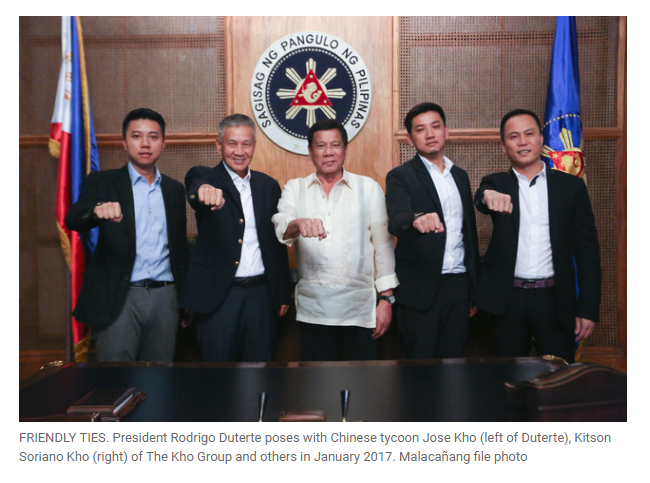Chinese-Filipinos and the Duterte Pivot to China

Screengrab from Rappler’s website.
THE CURRENT current administration claims that President Rodrigo Duterte’s pivot to China will boost the country’s economy and help modernize the Philippines’ infrastructure. Duterte’s meetings with Chinese President Xi Jinping have yielded pledges of loans, grants and other forms of aid.
A Rappler report on Duterte’s meetings with “Chinese” business groups written by reporter Pia Ranada on June 2 was straightforward and factual. It correctly noted that the number of Duterte’s meetings with these groups has been high enough to be indicative of the administration’s leaning towards closer relations with China. The report, however, fell short in providing the necessary historical context of the business relations between China and the Philippines, and where the Chinese-Filipino community fits in that narrative.
The report also mistakenly identifies some Chinese-Filipino businessmen, who are ethnically of Chinese origin but who are Filipinos by choice, as “Chinese,” and lumps them together with Chinese nationals.
Rappler reported that “Of all foreign businessmen, it’s the Chinese who have been most successful in securing appointments with President Rodrigo Duterte in Malacañang.” Using Palace records and “insider information,” reporter Pia Ranada said half of at least 32 business meetings Duterte has held were with “Chinese” business personalities or groups (“Chinese businessmen flock to Duterte’s Malacanang“).
Ranada provided a list of 15 individual meetings, several of which were attended by top executives of Chinese construction firms. Ranada wrote, “The significant number of meetings with Chinese businessmen is a manifestation of Duterte’s friendly policy to China and Chinese investments.”
Reading this, one would conclude that all of these business people were Chinese nationals. But some were Filipino citizens of Chinese descent.
Ranada’s article identified only one individual, Kitson Soriano Kho of the Hongkong-based Kho Group, as “Chinese-Filipino.” Ranada also identified as “Chinese” the Filipino-Chinese Chambers of Commerce and Industry (FCCCI) and the Liong Tek Go Family Association Inc. (LTGFAI), which has chapters all over the Philippines.
As of June 14, Rappler had removed FCCCI and LTGFAI from the list, but described them in an editor’s note as “Filipino-Chinese” organizations. The correct term, indicating that they are organizations of Filipinos who are of Chinese descent, is Chinese-Filipino.
CMFR previously cheered the Philippine Center for Investigative Journalism (PCIJ) and Philstar.com for their comprehensive reports on Chinese dealings and loans, referring clearly to Chinese nationals and corporations (See: “Probing Philippines-China Business Relations“; “Departing on the Chorus on Chinese Loans“). Through factual text and sound analysis, news reports can effectively explain this administration’s foreign policy as an issue of public interest.
But with growing criticism of the Chinese government’s incursion into the West Philippine Sea and the president’s undisguised favor for Chinese President Xi Jinping, journalists should distinguish between Filipinos of Chinese extraction and Chinese nationals in their reports. It may also be helpful for them to remind everyone that neither group deserves the often racist rants that have been provoked by the government of China’s acts and policies, and the Duterte regime’s partiality to it.
Leave a Reply